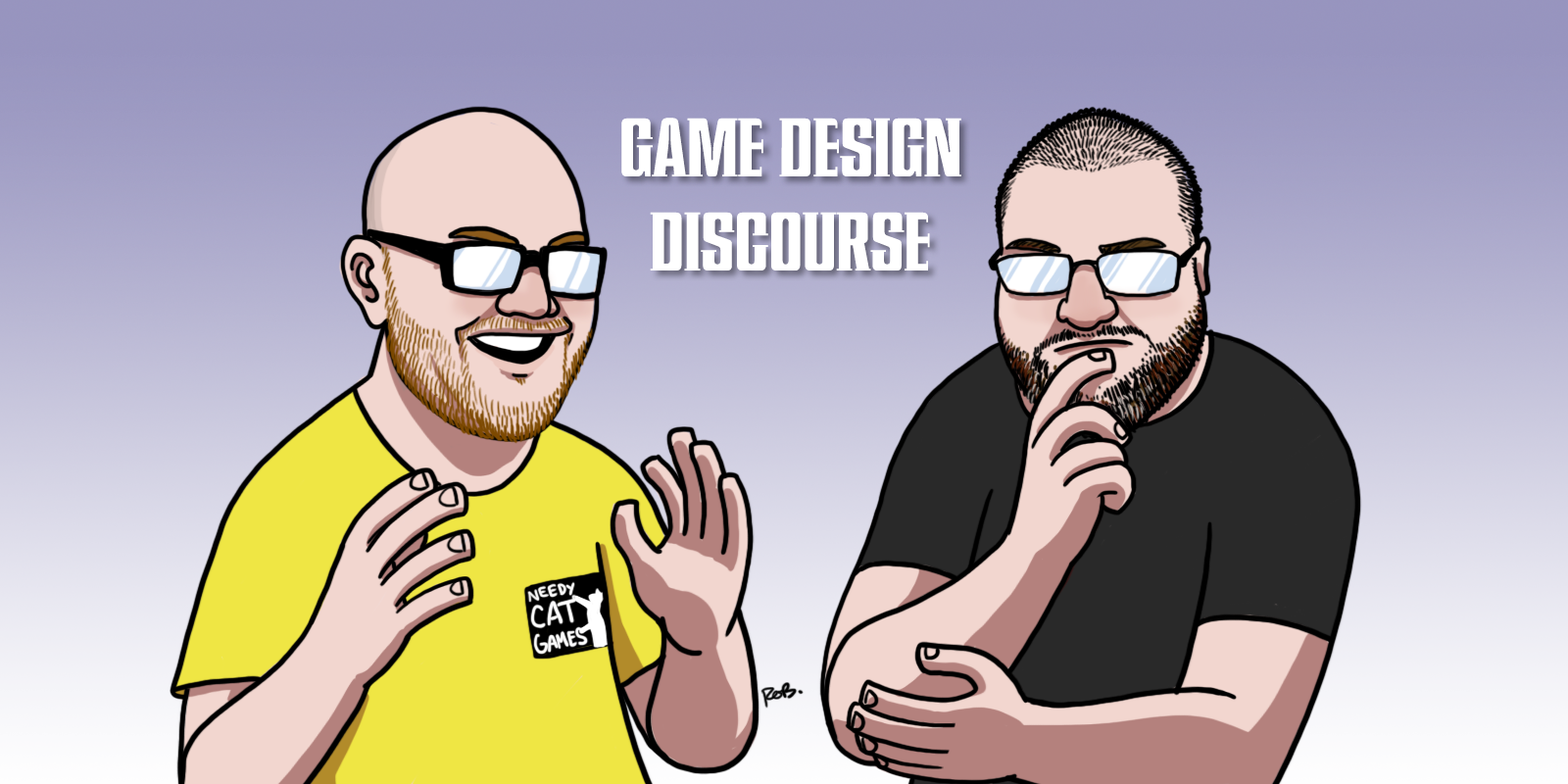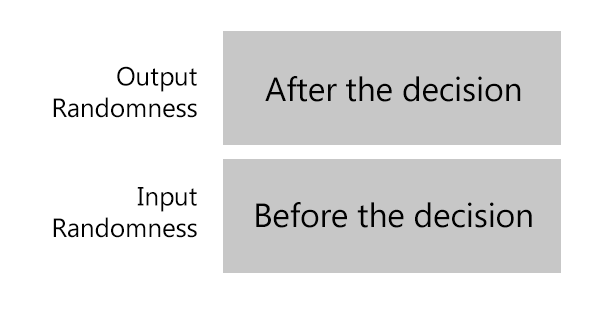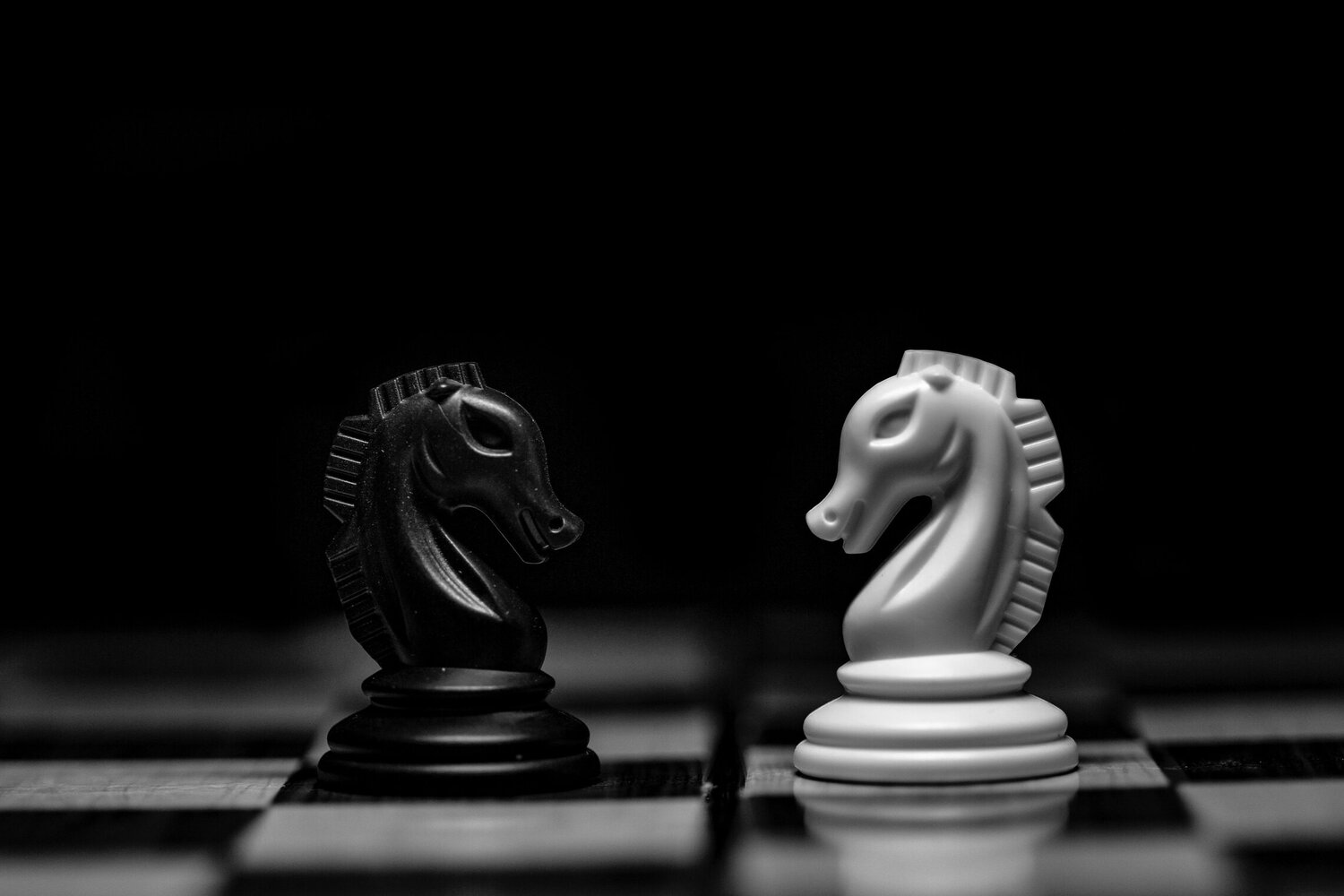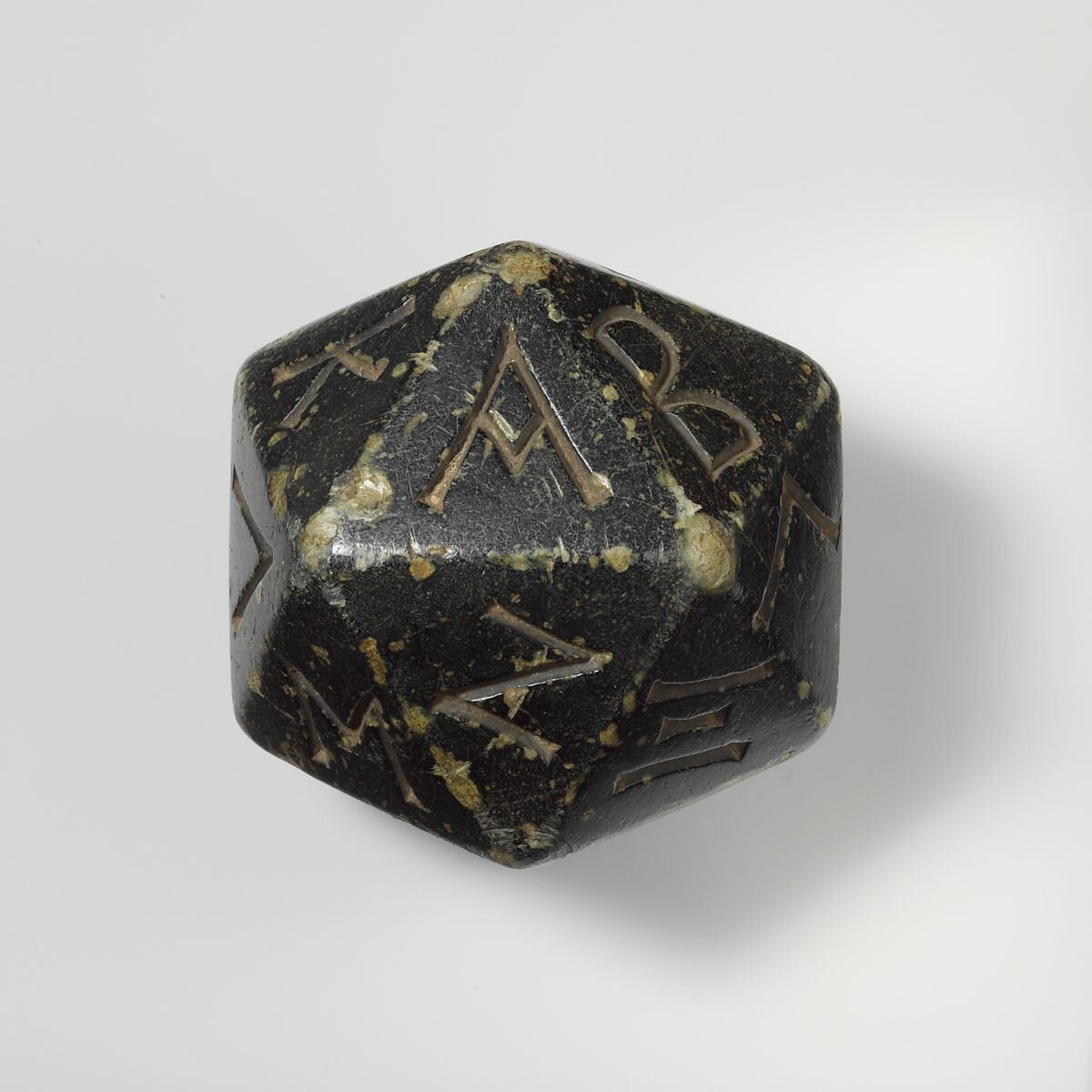I think that the issue isn't randomness (at all) but how and when that might be deployed by a GM. Most aspects of TTRPG play can constrain player agency based on lots of factors, all of which involve how the GM does things. Rolling on a random encounter chart isn't somehow agency constraining compared to the GM choosing an encounter - none of that impacts player decision making directly. Agency take a hit when player decision making is glossed over, ignored, or whatever - in short, when player decision aren't honoured by the GM, when they don't have the advertised effect. If players are given enough information to make good diegetic decisions and the consequences of those decision follow from and are shaped by those decisions, agency is maintained. Once the GM starts obviating those decisions, or doesn't hold true to the information they provided on which the players based those decisions is when we have issues.I agree making it binary seems bad.
But on the other hand, if agency is anything vaguely like being able to make choices that matter in accomplishing goals, doesn't randomness necessarily decrease agency?
I wonder if the key is that agency isn't necessarily fun. (Is a series of games of chess against a player rated 1200 points different than you any fun in spite of your complete control over getting the pieces to do exactly what you want in a completely reliable way?)
You are using an out of date browser. It may not display this or other websites correctly.
You should upgrade or use an alternative browser.
You should upgrade or use an alternative browser.
Do Random Tables Reduce Player Agency?
- Thread starter Reynard
- Start date
overgeeked
Open-World Sandbox
No, not at all. That's like saying that because you rolled low to attack a zombie your agency to attack in the first place was somehow reduced. Agency is the ability to make meaningful choices. Agency is not the ability to determine outcomes. And agency is not predicated on perfect information.But on the other hand, if agency is anything vaguely like being able to make choices that matter in accomplishing goals, doesn't randomness necessarily decrease agency?
To have agency you need some information to base your choice on. You cannot have zero information otherwise the choice is meaningless. But, importantly...just like in life, it's literally impossible to have perfect information. Further, you can still be wrong. You can still choose poorly. You information may be wrong. Random chance can prevent you from winning. You can still fail to achieve your desired goal. Etc. None of those negatives in any way removes or lessens your agency. This is why I put the words "perfect" in my post. People seem to be mistaking perfect information (which they cannot have) and perfect ability to determine outcomes (which they cannot have) with agency. That's not what agency is.
Take a basic platformer video game like Super Mario Bros., Metroid, or Castlevania. After playing a while you get used to the jumps, the distances, the speeds, etc. You internalize how the physics of the game world works. You have the information you need to make informed choices, i.e. you know the physics of the world, but, importantly...you can still guess wrong and miss a platform or miss an enemy with a shot or a jump. You still have agency, you can still make meaningful, informed choices...but you can still fail or be wrong. Because agency is not about perfect information or dictating outcomes.
So in D&D, you have PCs standing at a T-intersection. Do you go left or right? Not enough information to make an informed decision. So you as the player ask the referee for more info. They tell you the passage to the left is dusty, filled with cobwebs, and dark...but the passage to the right is clean to a sparkling shine with wall sconces and lit torches every 20 feet.
The players have enough information to make a meaningful choice. If they assume the well-lighted path is safe and the dusty path is dangerous, that's their assumption to make. They can be wrong though. Whether they check for traps is agency. Whether they investigate further is agency. Etc. Skipping all that and just walking down the well-lighted path is also agency...even if it's a trap-filled nightmare of Tucker's Kobolds.
This is why it's important for the referee to play fair and not railroad and not use illusionism. The players only have the referee's words to go by. They can only trust that the referee isn't switching this around to suit their whim. The world should be prepped and set, at least in any ways that matter to tonight's session. To move encounters is to rob players of their agency. Because it removes the meaning from their choices.
This. In most systems players declare intent, they don't decide outcomes. Having that intent adjudicated honestly is the bulk of player agency.No, not at all. That's like saying that because you rolled low to attack a zombie your agency to attack in the first place was somehow reduced. Agency is the ability to make meaningful choices. Agency is not the ability to determine outcomes. And agency is not predicated on perfect information.
To have agency you need some information to base your choice on. You cannot have zero information otherwise the choice is meaningless. But, importantly...just like in life, it's literally impossible to have perfect information. Further, you can still be wrong. You can still choose poorly. You information may be wrong. Random chance can prevent you from winning. You can still fail to achieve your desired goal. Etc. None of those negatives in any way removes or lessens your agency. This is why I put the words "perfect" in my post. People seem to be mistaking perfect information (which they cannot have) and perfect ability to determine outcomes (which they cannot have) with agency. That's not what agency is.
The example I would ask about is when there is less randomness to the roll, not whether it went in your favor or not.No, not at all. That's like saying that because you rolled low to attack a zombie your agency to attack in the first place was somehow reduced.
Does better (but not perfect) information give more ability to make meaningful choices?Agency is the ability to make meaningful choices. Agency is not the ability to determine outcomes. And agency is not predicated on perfect information.
I'm curious to see if there's anyone who doesn't think that answer to this question is obviously yes.Does better (but not perfect) information give more ability to make meaningful choices?
I'm curious to see if there's anyone who doesn't think that answer to this question is obviously yes.
If it's a yes, my follow up question then is if increasing the amount of variability or randomness definitionally decreases the quality of the information. (Telling you the number of guards +/- d4 vs. +/- d10, say. )
overgeeked
Open-World Sandbox
Again, no. Because the outcome has no bearing on your agency to act.The example I would ask about is when there is less randomness to the roll, not whether it went in your favor or not.
Better information will certainly result in having the capacity for better choices, I think. But what the players do with that information is still up to them. I'm not sure about more or less meaningful choices. Maybe it's late and the cold medication is kicking in, but I'm not sure about measuring the meaningfulness of choices.Does better (but not perfect) information give more ability to make meaningful choices?
Some choices will have more impact than others, sure. Choosing to wake up with your alarm or hit the snooze is a meaningful choice. Choosing to propose marriage or quit your job are also meaningful choices. But I'd say "how meaningful" those choices are is a matter of hindsight. Hitting the snooze alarm might be what allowed you to go on the snowball of the day that lead directly to finding the love of your life. So that would have more impact than you'd think. Etc.
"There are guards here" is clearly less precise than "there are 37 guards here". But either will still let the PCs make a decision. They don't suffer a hit to their agency because they know guards are here vs there are 37 guards here.If it's a yes, my follow up question then is if increasing the amount of variability or randomness definitionally decreases the quality of the information. (Telling you the number of guards +/- d4 vs. +/- d10, say. )
I think the important idea is how or to what extent that variability works against the information given to the players. It's probably generally true that certain kinds of variability certainly decrease the quality of the information. I'm less talking about the difference between 2 guards and 4 guards here than I am the difference between normal Lvl 1 guards and the possibility of, say, level 5 guards. At a certain point you'll have issues though, no doubt, but I'd lay that at the door of poor adventure design, not at the idea of randomness specifically. Well designed random tables aren't usually as random as they would need to be to cause that sort of problem but that's a very general notion, and the devil is in the details.If it's a yes, my follow up question then is if increasing the amount of variability or randomness definitionally decreases the quality of the information. (Telling you the number of guards +/- d4 vs. +/- d10, say. )
Semi-random selection of folks on the internet's thoughts to ponder - mostly about randomness in board and some video games all with parts about relations to agency. (I wonder if board and video games are a better field to work out definitions on because there isn't as much emotion on here about them as ttRPGs):

 www.goonhammer.com
www.goonhammer.com

 www.timetoloot.com
www.timetoloot.com

 keithburgun.net
keithburgun.net

 www.cloudfallstudios.com
www.cloudfallstudios.com

 www.maxbrooke.com
www.maxbrooke.com

Game Design Discourse: Randomness
In our latest Game Design Discourse, Lupe and @James_M_Hewitt talk about randomness and the role it plays in games.
 www.goonhammer.com
www.goonhammer.com

RNG vs. Player Agency – Time to Loot
Luck. Probability. Random Number Generation (RNG). Love it or despise it, it’s been a part of gaming for decades. At its simplest and most extreme form the outcome is decided in entirety by the...
 www.timetoloot.com
www.timetoloot.com

Three types of bad randomness, and one good one
A few years ago, I wrote an article about randomness in games. It was far from my first time taking a stab at the subject, but it is the most recent big, singular effort at describing the relations…
 keithburgun.net
keithburgun.net

Fun, Agency, and the Perception of Balance — Cloudfall Studios
If you’ve spent any time browsing around gaming forums, you’ve likely stumbled upon countless posts calling for nerfs. Players are often quick to point out what things they believe are overpowered and that need to be immediately addressed. A lot of this stems from the perception that the role of a g

Keeping Sisyphus Happy: Agency and Imagination — Babblings of the Brooke
The other day, I was discussing the nature of games with my friend David, and we came to a popular question: is Candy Land a game? Obviously, most people define it as such. It comes in a box, has pieces and cards and a board. But it’s also a common refrain in the board game community that Candy Lan
Lanefan
Victoria Rules
Huh? Wha?I agree, but a lot of GM do it.
No. Like all randomness, random table take away player agency.
Take the example:
A player scouts the big bridge and the DM rolls for a random bridge encounter and gets 'none'. So the PC finds nothing on the bridge.
The player happily has their character go back to town, load up their wagon, and in a couple of game hours goes back to the bridge. The DM rolls another random bridge encounter and gets 'hill giant robber'. So the player looses their player agency by the random roll.
It's no different then a DM 'just saying' a troll is 'suddenly' on the bridge.
From earlier today: I live in an apartment complex with a common laundry room in the basement. I went down to check if the machines were busy, and everything was quiet. I came back upstairs, picked up my laundry, and went back down. This took maybe three minutes, and in that time someone(s) else had taken all the machines. Bad luck for me, is all that was; and I've no right to complain that because the machines were empty three minutes ago they should still be empty now.
Things can change. What you see on the bridge now might very well not agree with what's there two hours from now, and this is in no way an affront to anyone's agency.
Similar Threads
- Replies
- 339
- Views
- 42K
- Replies
- 14
- Views
- 8K
- Replies
- 6
- Views
- 7K
- Replies
- 33
- Views
- 9K
Enchanted Trinkets Complete
Recent & Upcoming Releases
-
December 9 2025 -
June 18 2026 -
October 1 2026



